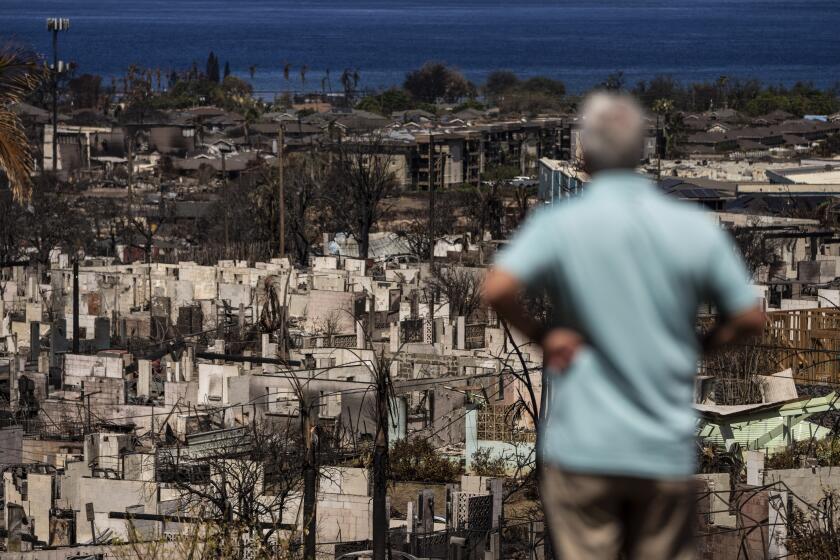The Long Battle Ahead
Mention guerrilla war to the average American, and Vietnam comes instantly to mind. Dense jungles and hit-and-run attacks, a daring enemy on his own turf using unconventional, unpredictable methods against an ill-prepared army. A “quagmire” surely, and, in the eyes of many, an unwinnable war.
But Iraq -- which Gen. John Abizaid, the new U.S. Central Command chief, has now authoritatively described as a classic guerrilla war -- is not Vietnam.
America’s lengthy experience with guerrilla war -- a rich history, long predating our involvement in Southeast Asia -- suggests that quagmire and defeat are not inevitable in Iraq, but that a long, complex and difficult war probably lies ahead.
During the American Revolution, rebels employed guerrilla tactics with considerable effectiveness in winning their independence. During the course of numerous Indian campaigns and in suppressing Philippine nationalists and Moro separatists after the Spanish-American War, U.S. troops took on guerrillas of various stripes, although seldom identifying them as such. In the 1920s, intervening in Nicaragua to put down Augusto Sandino’s insurgency, U.S. Marines fought an undeclared guerrilla war. The effort by federal troops to subdue the Ku Klux Klan during Reconstruction also qualifies as a counter-guerrilla campaign of sorts.
What does this wealth of experience suggest with regard to the ongoing conflict in Iraq? Five major points come to mind.
First, guerrilla wars tend to be long wars, measured not in weeks or months but in years. There’s a better-than-even chance that fighting in Iraq will still be going on when George W. Bush runs for reelection next year, with potentially large implications for that election’s outcome. In democracies, long wars tend to become unpopular wars.
Second, in guerrilla wars, defeating even a relatively weak enemy typically requires a large force. Putting down the Philippine insurrection between 1899 and 1903 absorbed 125,000 troops. A large country with a large population, Iraq does not promise to be less demanding. Fighter-bombers and aircraft carriers have their place, but beating the guerrilla requires boots on the ground.
About 150,000 U.S. troops are supporting the Iraq mission. Abizaid has indicated that if more forces are needed, he won’t hesitate to request them, suggesting that in the days ahead, the U.S. commitment may actually increase.
Before the war, another army general made himself unpopular with the Bush administration by predicting that occupying Iraq could require up to a couple of hundred thousand troops. Events may yet prove him correct. If so -- and with 21 of the Army’s 33 active-combat brigades already in Iraq or serving elsewhere overseas -- providing Abizaid with a continuous rotation of fresh troops could turn out to be the Pentagon’s toughest challenge.
Third, progress in counter-guerrilla operations is notoriously difficult to measure. Are we winning? When will the war be over? These become difficult questions to answer, especially when winning is not a matter of capturing ground or fighting big battles.
The key is more likely to be dismantling the enemy’s leadership one piece at a time or persuading the local populace to deny the guerrillas support. These are not the sort of achievements likely to impress impatient reporters demanding proof that victory is just around the corner -- hence, a tendency develops to rely on statistical measurements such as dead bodies or captured weapons, which may or may not be meaningful.
Fourth, for soldiers assigned to flush out the elusive guerrilla or to provide security against hit-and-run attacks, combat can be especially frustrating. Frustrated soldiers do unfortunate things: All too often, innocent noncombatants end up paying the price. Long before My Lai, in places with names like Sand Creek and Samar and Bud Dajo, U.S. troops fighting guerrillas committed atrocities. All wars are ugly; guerrilla wars are uglier still.
Fifth, guerrilla wars tend to have ragged edges rather than neat endings. Even when formally concluded, they may smolder, later to ignite. When federal troops pulled out of the South, the Klan came storming back. In the Philippines today, the Moros that Americans pacified nearly a century ago -- now labeled terrorists -- are once again fighting against the government in Manila. Thus, even if Abizaid wins the unconventional war in Iraq as handily as his predecessor, Gen. Tommy Franks, won the conventional war against Saddam Hussein, some level of anti-American violence may well continue indefinitely.
None of this means that the U.S. is doomed to fail in Iraq. But history counsels patience. The costs in blood and treasure are likely to be significant -- far higher than the Bush administration anticipated. And things could well get worse before they get better.
Andrew J. Bacevich teaches international relations at Boston University and is the author of “American Empire: The Realities and Consequences of U.S. Diplomacy” (Harvard University Press, 2002).
More to Read
Start your day right
Sign up for Essential California for news, features and recommendations from the L.A. Times and beyond in your inbox six days a week.
You may occasionally receive promotional content from the Los Angeles Times.






